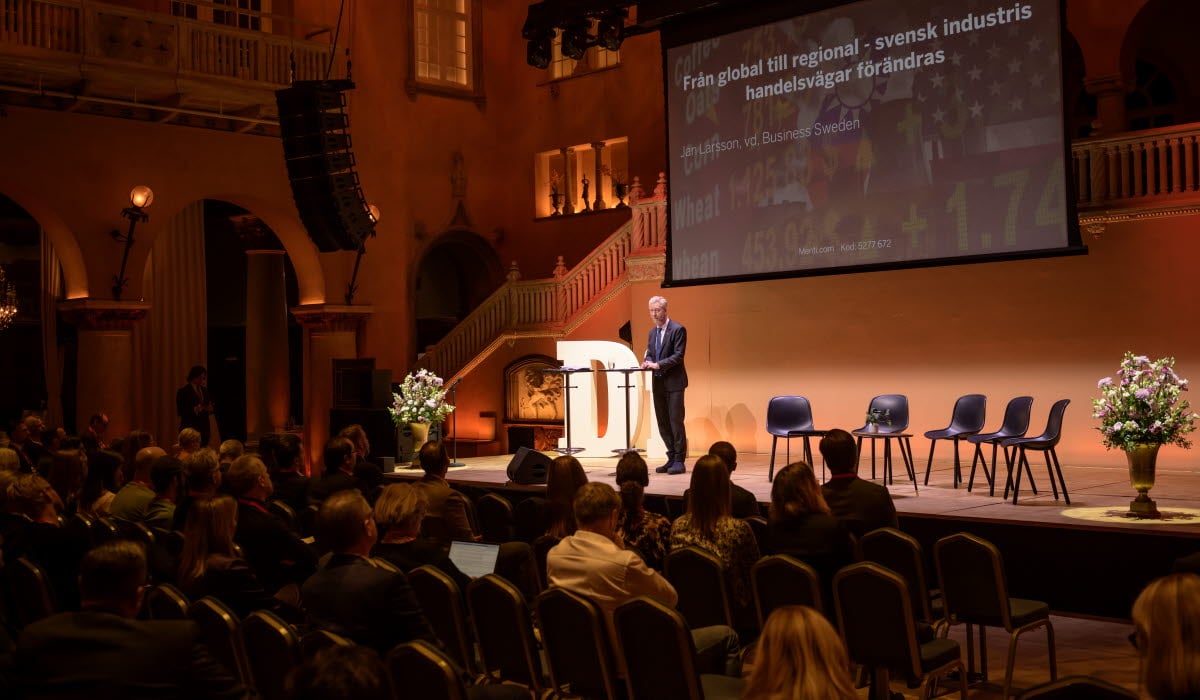Some 20 million people are diagnosed with Alzheimer’s disease every year around the globe – a figure that is expected to triple over the next three decades.
Alzheimer’s is the most common cause of dementia and researchers have spent a century trying to crack the enigma of finding effective treatments, or perhaps even a cure, for this severe degenerative brain disorder.
Thankfully, several important breakthroughs are on the horizon. And Sweden is at the forefront of scientific discovery.
GOTHENBURG PLAYED HOST TO PRESTIGIOUS CONGRESS
It is a timely coincidence that Gothenburg, Sweden’s second largest city, hosted the 2023 edition of the AD/PD™ Conference. This is one of the world’s most prestigious international meetings on Alzheimer’s and Parkinson’s diseases.
The five-day event kicked off on 28 March and will be attended by H.M. Queen Silvia of Sweden, who is very active and supportive in the field of Alzheimer’s.
"Alzheimer’s disease has a devastating impact not only on patients but also families and caregivers. Besides this, the societal costs are huge and are estimated to be USD 500-600 billion per year in the US alone, where over six million people are suffering from the disease," says Martin Jönsson, CEO at AlzeCure Pharma in Sweden.
His pharmaceutical company, which is publicly listed in Sweden, is one of several Swedish pioneers currently making promising progress on Alzheimer’s research, drug and therapy development.
“Our collaborative work in Sweden is laser focused on trying to counteract the early onset stage of Alzheimer’s. This means preventing the brain from degenerating in the first place,” Jönsson continues.
Sweden is leading the way on biomarker research and development.NEW MAJOR MILESTONE IN ANTIBODY THERAPY
On 6 January 2023, the U.S. Food and Drug Administration (FDA) approved the drug LEQEMBI™ which was initially developed by the Swedish biopharma company BioArctic.
Following randomised clinical trials, the medication has demonstrated a significant reduction in amyloid beta plaque in patients receiving treatment.
Billy Dunn, M.D., Director of the Office of Neuroscience in the FDA’s Center for Drug Evaluation and Research, commented in a press release: “This treatment option is the latest therapy to target and affect the underlying disease process of Alzheimer’s, instead of only treating the symptoms of the disease.”
According to Martin Jönsson, this is just one of the recent milestones in Sweden’s Alzheimer’s pipeline.
His company AlzeCure Pharma has two platforms in development, Alzstatin and NeuroRestore. A third Swedish company – Alzinova – has developed a candidate vaccine which has successfully passed pre-clinical trials.
A host of Swedish newcomers are also pioneering the use of AI and digital tools for monitoring and diagnostics.
“Sweden is truly leading the way on biomarkers. The discoveries made by researchers at the University of Gothenburg, Uppsala University and Karolinska Institute have been nothing less than groundbreaking,” Jönsson points out.
He underscores the seminal work of professors Kaj Blennow, Lars Lannfelt and Bengt Winblad who are all internationally renowned in the field. What’s more, a new generation of young talented researchers are continuing their legacy.
“At the conference in Gothenburg we will reveal exciting data together with Professor Henrik Zetterberg to highlight new advances with a potential preventive treatment, Alzstatin.”

THREE REASONS WHY SWEDEN IS LEADING THE CHARGE ON EFFECTIVE ALZHEIMER’S TREATMENTS
So what’s the secret behind Sweden’s relative success in the fight against Alzheimer’s?
That’s the question we put to Martin Jönsson in the run up to the AD/PD™ International Conference. In his view, it all comes down to three key contributing factors:
1. World-leading academic excellence
Swedish researchers have over decades helped to shape the world’s understanding of how Alzheimer’s disease emerges and evolves.
A good example is Professor Lars Lannfelt’s success in the 1990s with his seminal discoveries in genetic mutations that cause early onset Alzheimer’s. The first became known as “the Swedish mutation” and the second one “the Arctic mutation”.
2. A pioneering life science sector
Large companies such as Astra Zeneca and Pharmacia paved the way for knowledge building around neurodegenerative diseases and helped to support therapy development. This created a breeding ground for further discovery. The legacy was continued by a new generation of startups and researchers working closely together.
3. Risk tolerant venture capital
Sweden has been successful in mobilising private sector capital. Along with researchers, investors have been driven by a passion to solve one of the healthcare sector’s most elusive challenges.
The Swedish Alzheimer's Foundation (Alzheimerfonden) was established in 1988 and became a catalyst for numerous projects and initiatives.
“Sweden’s progress on Alzheimer’s is owed to a shared feeling of being on an important mission to improve people’s lives in old age. There has been no self-interest. Collaboration between academia, companies and investors has been instrumental to the breakthroughs we are witnessing today,” Martin Jönsson concludes.
Read more about Sweden’s life science ecosystem here.






